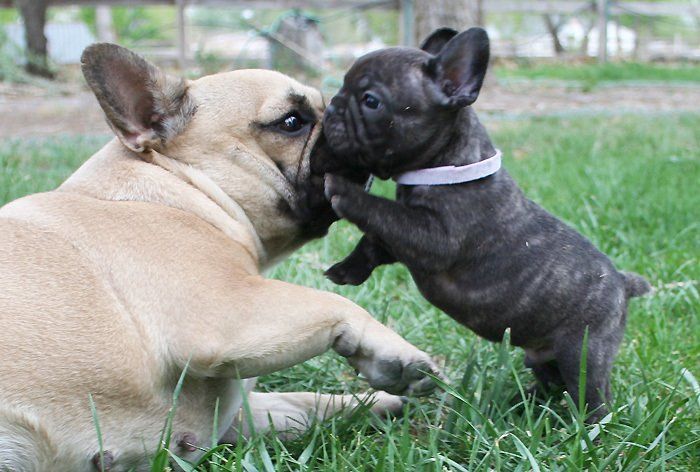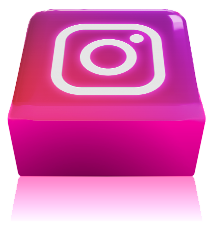Puppy Training
stephanie schenk • February 15, 2021
Puppy Training Tips

Food or Resource Guarding~
This is a normal behavior for a dog. This is a simple thing to correct when a puppy, not so much when an adult with full adult with established habit. Simply take their food or bone away and quickly replace with a fantastic treat. Repeat until there is no growling and they are looking forward to getting the treat in replacement. I will do this when they are with me so they will be conditioned for this, I am mentioning so you know how they have been trained. To train for messing with their food, just walk up and add treats to their food bowl. When they are conditioned to expect treat when you approach their food you can start doing exchanges and then give back. Always touch puppy before doing exchange. Some pups won’t like being touched while eating. If you have a lap or bed guarder you can do this same training approach. My pups are raised eating from a shared food bowl and my messing with them and their food, so they shouldn’t react badly to any of this. This is how you train for if a issue develops. Frenchies have never been aggressive to people, but they can be aggressive about other dogs getting into their bowl. If this develops as they get older, you can just feed in a crate. This is generally a result of being raised getting their own individual bowl to eat and not having to share.
Biting~
If you roll around on the floor and wrestle with your puppy with your hands, your puppy is going to bite. When you are rough with a puppy it teaches them to be rough back. If you want a more mellow puppy be mellow with them. Be gentle with them. Yes, a lot is temperament and personality, but you can guide that, with the way you behave with them. If playing, ALWAYS keep a toy between your hands and the puppy. Children and puppies can get in a biting loop where the puppy bites, the child screams and then the puppy bites more. It only takes a month or two for puppy to grow out of biting. Teach your children to be calm around puppies. You should never feel teeth on you. If you do, you can lightly pinch nose and chin together and say, “NO bite!” You can squirt with squirt bottle if doing to kids. Even dogs that like water, don’t like to be squirted.
Potty Training~
10 minutes after start of play session, 15 minutes after meals, and immediately after waking up. Signs of having to go potty, if he is playing or doing something and stops to look around take him out. If he walks near the door, take him outside. They will need to go out at least every hour. You will need to have a grass potty pad or two around. No food 3 hours before bed and no water an hour before. The smaller your puppy the more often they need to go and the longer it takes for them to be able to “hold it”. If you catch a puppy starting to go potty, clap your hands or startle them, so they stop and take them to potty pad.
Introducing To Older Dogs~
When bringing a puppy into a house with big dogs always have higher furniture or places for big dogs to escape to where puppies can’t go and small/short places that pups can escape under to get away from big dogs. This makes for less confrontations. Dogs that are aggressively told off by big dogs are less outgoing and more reserved when they get older than puppies that don’t have adult dogs aggressively telling them off. Or block off areas where the puppy can’t go. The more opportunity you give your older dogs to be able to escape from puppies, the less conflict you will have.
Training- No corrections, it shuts a puppy down and is negative reinforcement with its own lasting effects on a puppy. Always figure out how to solve a problem using positive training. Puppies learn best with VERY short training sessions. The longer you train the less well they will do things. And NEVER correct them, only use treats, your happy voice and petting. Short training sessions of 6 minutes with a half hour rest period/nap in between to learn what you showed them. Nap is preferred. Puppies learn when they sleep on things. It gives their brains time to sort out what you taught them. Best training is throughout the day. Have them do something every once in a while with a treat to reward.
Trainers~
You need to stand up for your puppy. They depend on you to guard them from bad things a trainer might want to do to them. One bad trainer can destroy a puppy for life. NO heavy handedness. ONLY positive reinforcement training. Baiting to get a puppy or dog to do what you want. No prong or shock collars. Under NO circumstances do you EVER “establish your dominance” by putting a dog or puppy on their back. Manhandling or being aggressive with your dog/puppy only builds aggression and creates SO many other behavior problems.
What you should be doing, get that puppy out and experience as many experiences as possible. The first 12 weeks of life are the most important, but you want to continue until 18 months. Use caution if something is too much or a person is too rough with them, it can cause a fear imprint instead of a good imprint. It takes 3-10 good experiences of the same to overcome the one bad experience, depending on how bad. Meet as many different types of dogs as possible without risking your puppy’s health or well being. Meet as many people and friendly trusted dogs as possible. Stay away from dog parks or anywhere that lots of strange dogs have been or don’t set them down in these areas. Teach to come, walking on leash, sit to ask for things and crate training for short period of times. Using lots of rewards for these. No jerking on leashes for corrections. With positive bait training your puppy is never too young to train. My group puppy recall is a very high pitched “Puppy”, if in a pinch/emergency try using this recall to call your puppy.
Crate training- 6 months old, make sure you take away food and water for a couple hours before. Give a nice treat like a kong filled with yummy and lock in crate for a short time and let out BEFORE puppy starts complaining. Put in for naps and take out when pup wakes up and before it starts complaining. You’ll be using an Xpen for any length of time. A mini Frenchie usually can’t be locked in a crate all night. Thus the Xpen, crate for bed and potty grass.
Leash training-
starts with no collar or leash. Start by walking, anytime the puppy comes up to walk next to you treat. Work up to walking a few steps next to you before treating. When puppy is walking next to you all the time put on a collar and walk, when good with that add the leash. No pulling on the leash, it teaches a puppy to tug. Treats are ALWAYS good, no matter how old. If you already have a puppy that sticks to you like glue, you can skip the first two steps and go ahead and put on the leash and collar and start walking being sure to keep the leash loose at all times with no chance of pulling while doling out the treats so they are walking on a leash without noticing they are. When they are walking real good with no stalling or pausing you can slow a little on the treats, but keep treating at regular intervals. It usually just takes one time of this for them to be trained. Leash training is one of the easiest things to train.
Puppy class
is structured and much more safe than a dog park if looking to socialize your puppy. A good puppy class teacher would never ask you to force or manhandle your puppy. Puppy play time should be with similar dogs in their activity and playfulness, not so much size or age. And remember your 6 minute rule. If you have to step away with your puppy to take a break from training, have a Kong or something to keep him occupied, while you keep an eye on what is going on to take notes for later.
Poop Eating-
Poop eating may be something as simple as boredom or curiosity that most puppies grow out of. My best remedies for stopping this behavior from becoming a habit is to sneak up behind pup while eating poop and pour Tabasco or lemon juice on poop and let continue eating. The other way to stop it, is to arm yourself with a small squirt bottle. When he/she turns to start checking out poop, squirt and hide squirt bottle if possible, so doesn’t know where it came from.
It isn’t: Your pup doesn’t have a health issue. Hasn’t been raised in a dirty kennel cage. And it isn’t a diet deficiency, because you should be feeding a good food with a multivitamin added like Nature’s Farmacy Ultimate.





